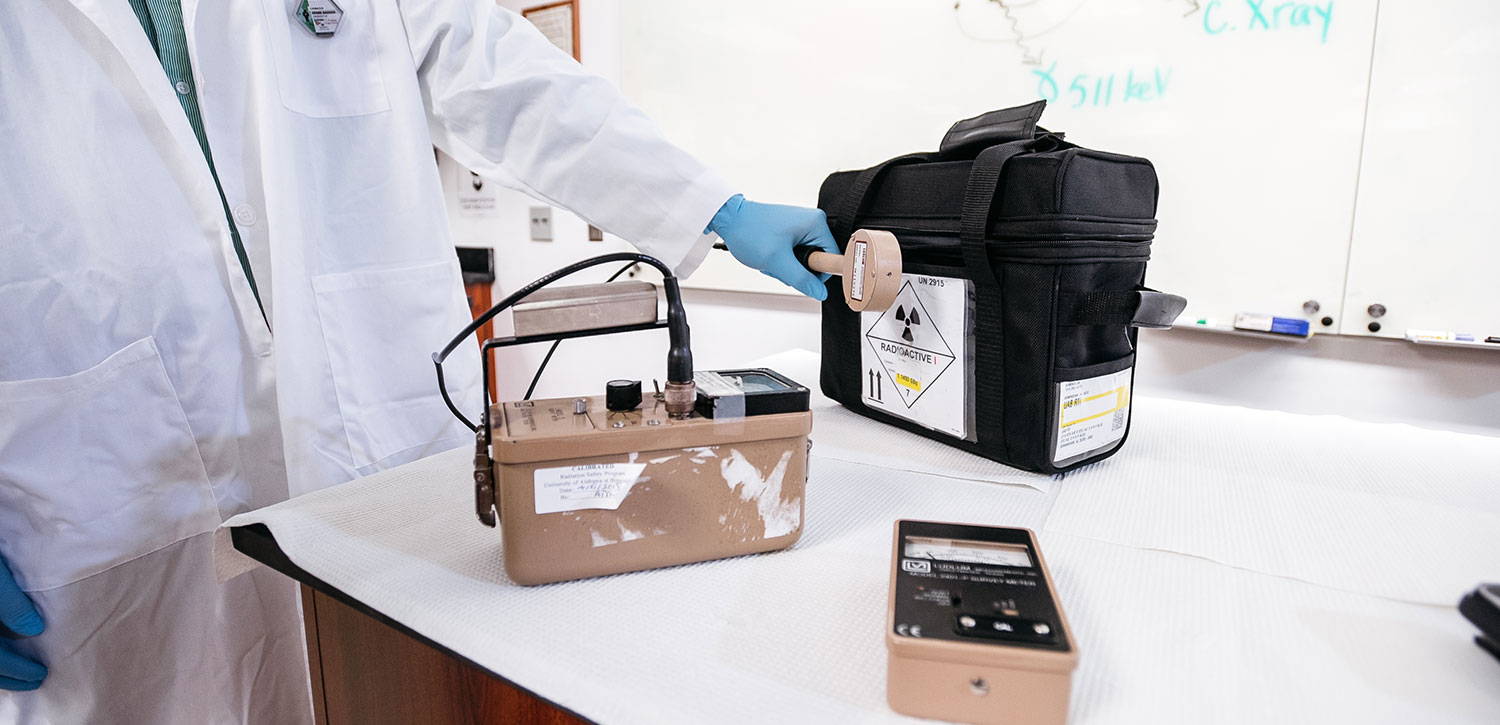Health Physicist

A career in health physics, also referred to as the science of radiation protection, is a profession devoted to protecting people from potential radiation hazards, while making it possible to enjoy the beneficial uses of radiation. As a health physicist you can work with and manage radiation safety across all industry. Hospitals, clinics, and major medical centers use radiation sources, including x-ray machines, particle accelerators, lasers, and many other types of radiation that have to be managed and are regulated to ensure safety to humans. Health physicists are needed to ensure proper and safe working conditions for anyone who use or could be exposed to radiation.
-
Percent Change in Employment, Projected 2018 - 2028 8%Medical Scientists
-
6% Health technologist and technicians
-
5% Total, all occupations
Note: All Occuations include all occupations in the U.S. Economy
Source: U.S. Bureau of Labor Statistics, Employment Projections program
Outlook and demand
Employment of medical scientists such as health physicists are projected to grow 8 percent from 2018 to 2028, faster than the average for all occupations. A larger and aging population, increased rates of several chronic conditions are all factors that are expected to increase demand for medical scientists. Continued advancements in the detection of cancer and the development of more sophisticated treatment techniques may also lead to greater demand for radiation therapy.
Employers look for professionals who can:
- Ability to pick up on visuals cues in structure, equipment, or procedures that may pose a threat
- Evaluate your data and samples to draw conclusions about the health of the environment and the public
- Presenting verbal and written analysis of your findings, as well as interact with the public when gathering information
- Have lab skills and familiarity with testing procedures and equipment to run samples
Paths that can lead to this career
An M.S. in Health Physics can prepare you for a career as a health physicist or radiation safety officer. Certification as a health physicist is obtained through state examination, and must be maintained through continuing education.
-
High School
If you're currently in high school and interested in becoming a health physicist you can do the following steps to prepare for this career:
- Explore majors based in science or health care, such as UAB's Biomedical Sciences Major and Health Care Management Major.
- Find opportunities to job shadow or volunteer in hospitals or radiation clinics.
- Look into the requirements for the Health Physics Early Acceptance program to see if you qualify.
-
Undergraduate
If you're currently an undergraduate and interested in becoming a health physicist you can do the following steps to prepare for this career:
- Complete any bachelor degree from an accredited university, however it is recommended you take:
- Calculus-based General Physics I
- Calculus-based General Physics II
- Algebra-based General Physics I
- Algebra-based General Physics II
- Calculus
- Find opportunities to job shadow or volunteer in hospitals or radiation clinics.
OR
-
Graduate
If you already have a bachelor's degree, the following courses will help you in this program:
- If you already have a bachelor's degree, the following courses will help you in this program:
- Calculus-based General Physics I
- Calculus-based General Physics II
- Algebra-based General Physics I
- Algebra-based General Physics II
- Calculus
OR
Job titles and employers
Did you know?
The MS in Health Physics programis the only program of its kind in Alabama.
Radiology Safety Officer
Places of work for this career:
- Hospitals
- Radiology Imaging Clinics
- Nuclear Plants
To find out detailed salary information and more information on this career, you can explore the Department of Labor's O*Net database..
Organizations to check out for this career:
- Health Physics Society
- American Society of Radiologic Technologists
- Specialists in Radiation Protection
Next steps
Explore
Find out more information about the Health Physics program.
Get Started
Learn more about admissions and financial aid now.
Ask
Contact us at